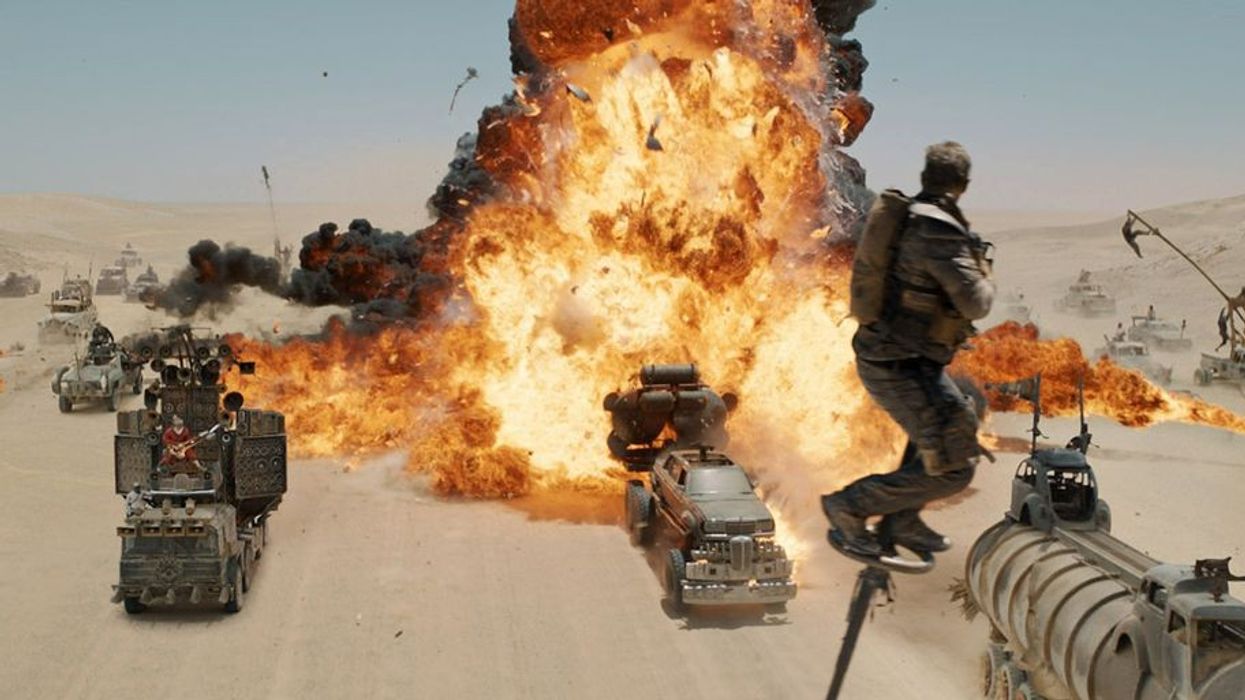Come On People, It's Time to Stop Hating on CGI

If you're one of those people who reads internet editorials about film and filmmaking (and let's face it, the fact that you're reading this right now is a good indication that you are), then you've undoubtedly heard somebody lament that computer generated imagery is destroying everything sacred about the moving image medium. In all honesty, I've been that guy, and I'm not particularly proud of it. That kind of attitude is emblematic of a fundamental misunderstanding about what visual effects enable us to do, and that is tell stories better than we otherwise could.
In a brand new video from RocketJump Film School, which is rapidly becoming one of my favorite new YouTube channels, Freddie Wong takes us on a journey through a brief visual history of digital effects, and explains why, in his opinion, CGI has unfairly gotten a bad rap in years past. Check it out:
Freddie's argument here is manifold. First, he points out that we don't even notice a vast majority of the visual effects work that goes into modern visual content. Most of the CGI work these days is incredibly subtle, ranging from rain and smoke and various particle effects that would be difficult to capture physically, to various elements of world building. A much smaller percentage of CGI, on the other hand, isn't particularly subtle, like giant shapeshifting robots galavanting throughout the city. Unfortunately, that's what many of us associate with CGI, even though that kind of content only accounts for a tiny minority of what the technology is actually used for.
Another argument that is often brought up is that practical effects are inherently better, that they're somehow more effective and immersive than computer generated effects. While there's an undoubtable charm to practical effects, saying they're inherently better kind of misses the point.
Take the latest Mad Max film for example. Though it was heavily touted by most everybody — ourselves included — that the heavy use of practical effects is what made that film so visceral and immersive, in truth, it had as much CGI work as any other modern day action film. With that said, you can't discount the incredible power that practical effects ultimately had on that film. In the end, though, it was the combination of those two styles of effects, the practical and digital, that created some of the most thrilling action visuals in recent memory. One of those types of effects without the other, and the film most likely would have been a complete bust. But the combination of the two allowed for something magical.


All in all, it comes down to the fact that CGI is a tool. And like any other tool, it can be and has been misused. As Freddie points out, though, the films where we feel inclined to hate on the CGI are, more often than not, just plain bad films to begin with. They're not very compelling stories, and the characters aren't worth an investment of our emotional energy. And it's when we're not drawn into those crucial elements that we begin to criticize pieces of the production like the VFX and lament that they're ruining movies.
On the other hand, great stories and characters can support mediocre effects, and mediocre sound, and mediocre cinematography. That's not to say that good storytelling is necessarily a panacea for bad technical filmmaking, but when the core story elements are in place, you're far less likely to be hearing audiences resent the production elements that weren't particularly strong.
Here's the exciting part of this whole thing. Even though CGI has already helped filmmakers create some marvelous films that never would have been possible without that technology, I don't think that we have fully realized the potential for CGI yet. It's still a wide open frontier, one that continues to expand as our computers get more powerful and our software tools improve. And if that alone doesn't get you excited about the future of CGI, then just consider the stories that the new technology will enable us to tell.
What do you guys think? Has computer generated imagery been unfairly demonized, or do you agree that CGI isn't a beneficial tool for filmmakers and film fans? Let us know down in the comments!
Source: RocketJump Film School











